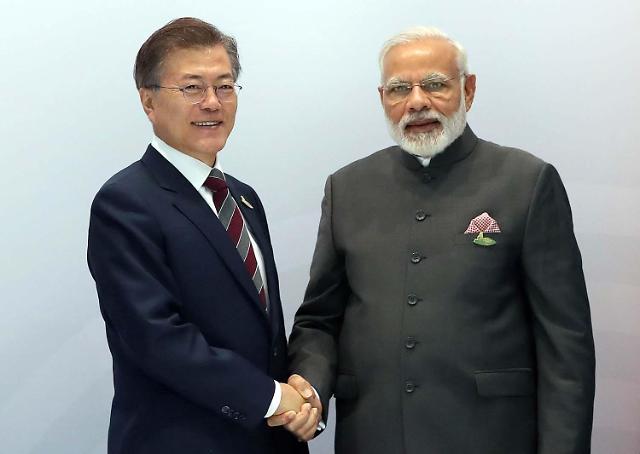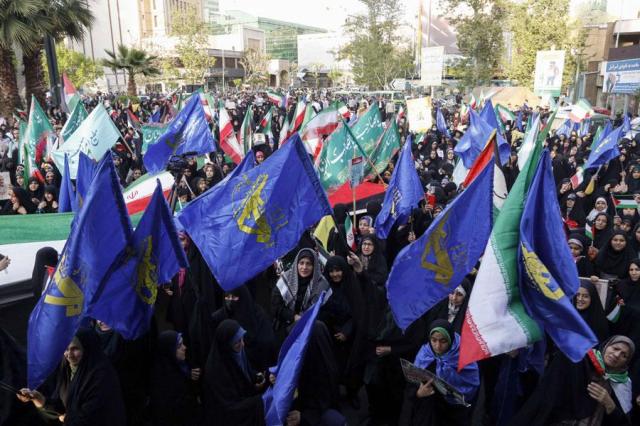
[Courtesy of the presidential Blue House ]
SEOUL -- South Korean and Indian leaders agreed to push for joint lunar exploration and upgrade their strategic partnership in defense and space industries. South Korea, a newcomer in the space industry, has tried to find a new partner for technical cooperation.
The agreement came at a summit between South Korean President Moon Jae-in and Indian Prime Minister Narendra Modi in Seoul on Friday. The two leaders agreed to strengthen strategic exchanges and cooperation in the fields of military and defense industry. Moon urged India to allow South Korea's participation in the construction of nuclear power plants.
Modi described South Korea as a crucial partner for India's economic development and called for strong ties in the security industry, referring to the delivery of Samsung Techwin's K-9 155 mm self-propelled howitzers to India last year.
The Indian leader called for South Korea's participation in India's Chandrayaan project. Chandrayaan-2 comprises of an orbiter, a lander and a rover. After a controlled descent, the lander would soft-land on the lunar surface at a specified site and deploy a rover.
"The most collaborative field we want from India is space," Moon said, praising India's world-class technology in the space sector. "Cooperation between the two countries in the space sector will continue until the day when India and South Korea jointly explore the Moon," he said.
South Korea plans to send an unmanned orbital probe to the Moon by 2020 and land an unmanned lunar probe to the surface of the Moon by 2030. South Korea's space program has seen slow progress as other countries are reluctant to transfer core technologies. Three space rockets have been launched but two fired in 2009 and 2010 failed to reach orbit. The third one using Russian technology put a satellite into orbit.
In November last year, a test rocket powered by South Korea's first home-made booster engine reached the maximum height of 209 kilometers (129 miles). Engineers hailed the test launch as significant progress in a costly state program to put a full three-stage indigenous rocket into space in 2021.
India has sufficient experience and technology. The Indian Space Research Organisation (ISRO) sent a lunar orbiter in 2008 and a Mars orbiter in 2013. ISRO launched one hundred and four satellites in a single rocket in 2017. Future plans include the development of a reusable launch vehicle, human spaceflight, controlled soft lunar landing, interplanetary probes, and a solar spacecraft mission.




